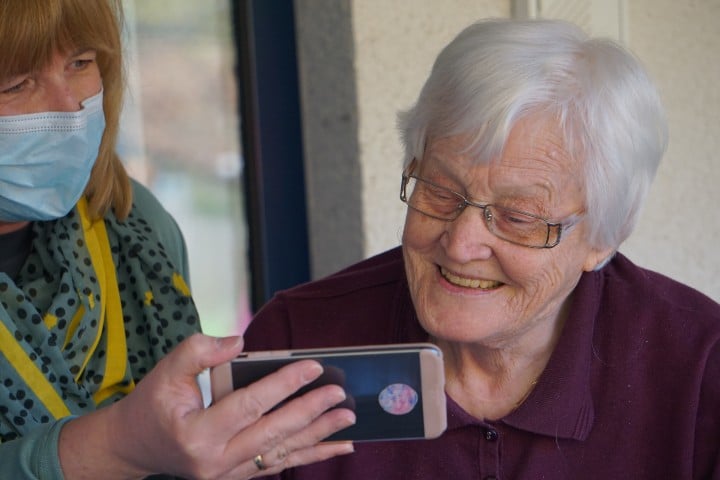With the recent local lockdowns across England and the possibility of a second wave of COVID-19 during the winter months, the pandemic is far from over. But what does this mean for those who provide care for loved ones who are elderly or who are living with a long-term health condition?
Currently, local lockdown restrictions mean that you are only able to mix in someone’s home or garden if you live with them or are part or their support bubble – where one adult living alone can join with another household. This also applies to socialising outside of your home; you can only do so in groups of less than six, and with those that you either live with or who are in your support bubble. However, there are some exceptions to this rule, with the newest being the introduction of a ‘care bubble’ that was recently announced by Secretary of Health & Social Care, Matt Hancock.
What is a care bubble?
A care bubble is when two households are allowed to mix to provide informal caring arrangements for one or more person. This means that if you regularly pop in to check on your elderly neighbour, or provide full-time care for a parent that has a variety of health needs, you are still able to do so if your area is under a local lockdown.

When local lockdowns came into force back in July, this wasn’t initially the case, causing lots of concern and angst for those who relied on loved ones to provide their care. However, the Government has recognised how vital it is for those in need of extra support to continue to receive care from loved ones where possible. Not only does it mean that you can still continue providing care for your loved one, but it provides continuity of care that you are both used to, relieving any emotional pressures for both of you.
Home care for extra support
If your loved one needs additional support that you are unable to provide, you may want to consider home care. This type of care can be delivered alongside the care that you also provide, giving you all peace of mind that your loved one has everything they need to stay living well at home. Furthermore, they can continue to stay living in the home they know and love without the upheaval and stress of moving into a care home, which are currently facing strict ‘no visit’ rules for any areas in a local lockdown.
As a leading home care provider since 1989, we understand how important it is to keep in contact with your loved one both physically and remotely, which is why you would still be able to visit and even continue with your own care routine alongside a Helping Hands carer supporting your loved one.
We have a stringent coronavirus policy in place for all staff to adhere to, which may help to alleviate any worries that you may have when welcoming a new carer into your home. Alongside following Government and Local Authority guidelines for providing care in peoples’ homes, all of our fully-trained carers are required to wear a fresh set of gloves, apron, and mask as a minimum for every care call they undertake. Find out more information on how we’re providing care during the coronavirus pandemic here.
How can home care help during coronavirus?
Whether you’re looking after a family member part-time, need additional help, or are no longer able to care for them, home care from Helping Hands could help both you and your loved one during, and beyond, the coronavirus pandemic.
Crafted around you and your existing routines, our flexible support plans allow you to choose the type of care that is right for you that seamlessly fits into your life. We’ll get to know you and how you like things done in your home, so that the care you receive is completely tailored to you. That way, you can add extra support onto your care plan as and when you need it. Or if your regular caregiver needs to take a break, we can step in and provide more intensive respite care until they return after recharging their batteries.
Our aim is to keep you safe and well in the place you know and love: your home.